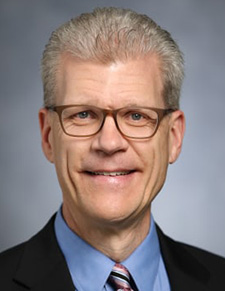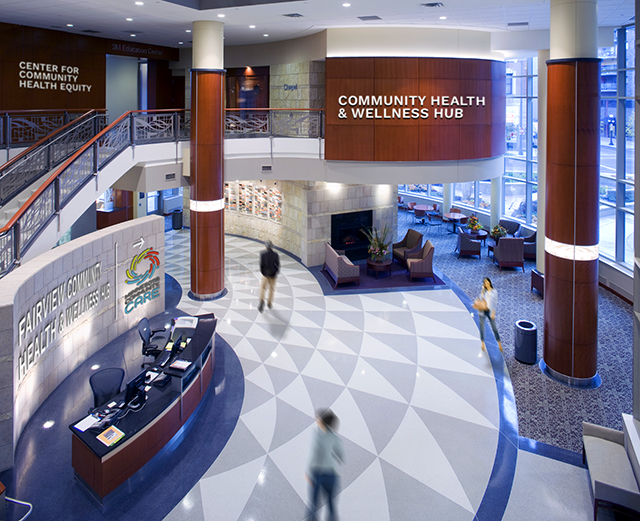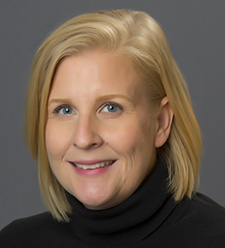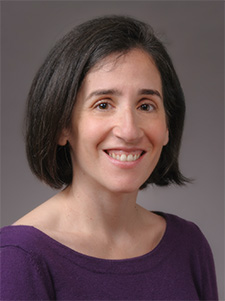Karin Johnson’s mother Dorothy, 86, often comes home singing from Martin Luther Adult Day Center in Bloomington. Dorothy, who has dementia, spends weekdays at the center in a program for seniors with memory problems or physical disabilities. It provides food, interaction, medication management and entertainment — all while giving participants’ caregivers a much-needed break.
“She gets things there that she doesn’t get when she is just sitting around at my house,” Johnson said of the Martin Luther program. “My mom’s physically healthy but she lives in her own little world. She often doesn’t even know me most of the time — but she’ll come home and she’ll be singing songs like, ‘Let Me Call You Sweetheart.’ It makes her happy. She’ll even sing to the dog.”
Modeled after a system designed to help elderly people stay out of residential care, the Martin Luther Adult Day Center provides as many services as possible so that participants and their families can limit the number of places they have to travel.
Johnson said that even though caring for her mother can be hard work, she’d rather not have Dorothy live in a nursing home, and having the day center available makes her living with the family feel possible. “I’m a nurse,” Johnson said. “I want my mom here. I can take care of her.”
“This is a godsend for me and my husband, and it’s good for Mom, too,” Johnson said. “She doesn’t go on the weekends, and when she’s home she will just sleep a large part of the day. She gets so much more when she’s there.”
This fall, Fairview Health Services and Ebenezer Senior Living announced that they will partner to open a new adult day program when St Joseph’s Hospital transitions into the Fairview Community Health and Wellness Hub. The adult day program, which will operate much like Martin Luther’s but with enhanced service offerings, will provide care to underserved, mostly low-income St. Paul seniors, helping them maintain active and independent lives. It will open sometime in 2022.

Jon Lundberg
Jon Lundberg, president and CEO of Ebenezer, explained that when he and his colleagues heard about Fairview’s plans to reorganize and reopen St. Joseph’s as a health and wellness hub, they offered up a plan. “As the work was beginning on this project, and we started to understand some of the things that were being contemplated there, we stepped forward to say, ‘This would be a great opportunity to embed an adult day program,’” Lundberg said.
Fairview’s vision of combining a range of community support services in one building felt like a perfect match, he explained: “The focus on connecting with community, being intentional about providing services that allow people to thrive in the community in which they live ties nicely with the mission of an adult day program.”
Lundberg said the fact that this program will share a building with a range of providers, including mental and physical health clinics as well as food-access programs feels exciting, like a step forward in comprehensive, community-based senior care.
“It allows us to do something that would be uniquely different in the adult day community,” he said. “Most adult day programs these days are freestanding, maybe in a strip mall somewhere or on a long term campus. There aren’t many adult day programs that have access to the array of resources and support that this program will have in the Hub.”
A unique opportunity
Most adult day programs are organized around a traditional structure, Lundberg explained. “A typical program provides different offerings, access to meals and daily activities to engage folks,” he said. “A real important feature of these programs is being able to provide socialization for the clients they are servicing and an opportunity for caregivers to have a break or be able to continue to work and know their loved one is safe.”

Fairview Health Services
Fairview Health Services and Ebenezer Senior Living announced that they will partner to open a new adult day program when St Joseph’s Hospital transitions into the Fairview Community Health and Wellness Hub.
The Hub’s location and range of service offerings will be a boon to participants and their families. Beyond health care clinics, pharmacy services will also be available, as will a food shelf. Ebenezer staff is also working to build relationships with other area social service agencies and providers to further expand the number of options available to day center participants.
“We would be looking at building partnerships with others in the nearby community, including Catholic Charities,” Lundberg said. “We would also be working with county social workers and different referral sources. And we will also collaborate with our partners in home care and hospice services.”
The new Adult Day Center will be located on the third floor of the hospital’s De Paul tower, and the 1,500-1,600-square-foot space will include a large gathering room where the program’s primary activities will take place, staff space, a kitchen for modest food prep and a bathing facility for participants. It will be big enough to provide services to 25-30 people at a time, with as many as 75-100 clients on a rotating basis.
“It really is an exciting prospect,” Lundberg said. “We think we are perfectly situated for success.”
On PACE with the future
While the Ebenezer/Hub Adult Day Program can work independently, its founders say they have designed it with the goal of one day being able to easily transition into a PACE, or Program of All-Inclusive Care for the Elderly, a federally funded program that provides comprehensive medical and social services to frail elderly people still living in the community. Some 32 states have PACE programs, but the Minnesota State Legislature has yet to approve PACE here.
“Ideally, if we ran the world, we would love to see PACE operating in Minnesota,” Lundberg said. “We would see this Hub as being a great example of where we could launch from to build the components of PACE to host a solid program on the PACE model.”

Kari Thurlow
Kari Thurlow, senior vice president of advocacy for LeadingAge Minnesota, explained that PACE programs operate much like the Martin Luther Adult Day Program that Johnson’s mother Dorothy attends.
“PACE’s whole purpose is to provide integrated health care and social services to frail at-risk seniors outside of traditional models like a nursing home,” she said.
The program plays out differently in each model, Thurlow explained. Often, an adult-day model addresses all the needs of that particular individual. “It merges health care and social needs. Frequently these are low-income, high-needs individuals who really do need pretty intensive care management but they want to do so outside the walls of a nursing home.”
Minnesota came close to implementing PACE programs a decade ago, said Roni Falck, LeadingAge’s manager of adult day services. But because PACE rates are subject to federal regulation, the rates have to be lower than nursing home rates. “Because we were so severely underfunding the state’s nursing homes, it made PACE programs not viable for funding,” said Falck, who noted that Minnesota has improved funding structures for nursing homes since then, making it more likely that the program could be implemented.

Roni Falck
The Fairview/Ebenezer program is carefully designed for PACE approval, Thurlow said. “They have all the building blocks in place.”
For those like Johnson’s mother Dorothy, such adult-day programs can be a lifeline. When COVID forced the temporary shutdown of the Martin Luther Adult Day Program, the impact was palpable, Johnson said: “My mom’s dementia increased. She didn’t get the mental stimulation she’d been getting there regularly.”
When the program eventually reopened this year, Johnson and her mother eagerly returned. Dorothy is now attending five days a week, getting breakfast and lunch. Even though her mother’s condition has declined in the last year, Johnson said she still gets a lot out of the time she spends there.
“It is really good for her — and for me. I so highly recommend it for people if they are caring for their loved ones at home. It’s so important for everyone — and it’s so much better than memory care.”
